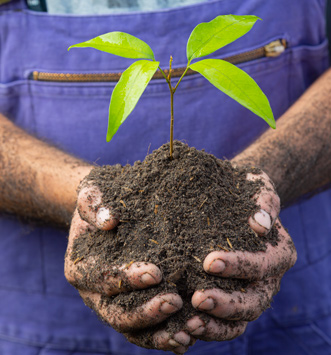
Initially set for January 1, 2021, the implementation of Regulation (EU) No. 2018/848 on organic production and labeling of organic products has been postponed to January 1, 2022 at the request of the European Commission. This new regulation "aims to ensure fair competition conditions and (...) to maintain consumer confidence in products labeled (...) organic". Like all organic products distributed, processed, produced or imported in the European area and France, organic tea is affected by this evolution. Let's look together at what the new 2021-2022 organic regulations will change in your habits.
New 2021-2022 organic regulations: a strengthened control system
Organic farms are subject to a minimum annual compliance check. Random unannounced checks may be added. This frequency can be extended to 24 months, provided that an organic farm has met the requirements of compliance checks for three consecutive years.
Identical organic regulations for producers from non-EU countries from 2022
The new 2021-2022 organic regulations set more stringent import rules. Producers from third countries will now have to comply with the same rules as producers from European Union states. This project has a dual objective:
- establish fair competition between producers in European Union member states;
- offer consumers a harmonization of quality standards for organic products marketed in the European area (whether these products are produced in the EU or not).
An extension of the list of organic products by 2022
The list of products and productions eligible for European organic certification is expanded. Among the products concerned are:
- salt;
- cork;
- beeswax;
- mate;
- vine leaves;
- palm hearts;
- essential oils not intended for food;
- wool;
- raw hides;
- silkworm cocoons;
- natural gums and resins.
Clearer labeling for better-informed organic consumers from 2022
The new 2021-2022 organic regulations provide for the implementation of clearer labeling for organic products. This labeling must mention the origin of agricultural raw materials. It must also indicate the name of the control body. The European organic logo must be prominently displayed on products.
New 2021-2022 organic regulations: ban on soilless agriculture
According to the new European regulation on organic agriculture, plants must be primarily nourished by the soil ecosystem, certain production and farming methods are prohibited. These include, among others:
- hydroponic agriculture;
- cultivation in containers, bags or trays;
- delimited squares.
Certain production and farming methods not related to soil are exempt from this ban. These include, for example, the following productions:
- sprouted seeds;
- endives;
- potted ornamental plants;
- potted aromatic plants;
- seedlings for replanting or transplanting.
New 2021-2022 organic regulations: what changes for organic tea flavors
The new regulation approved by the European Commission subjects organic products containing flavors to a stricter framework. Only flavors obtained from natural flavoring substances and consisting of at least 95% organic ingredients can be used in the composition of organic products. With the entry into force of this new European project, AB certified tea marketed in France can now only use organic flavors in its production. Natural flavors are no longer allowed in processed organic products.